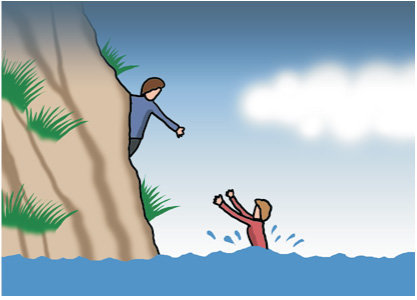Holding someone else’s hand
Holding someone else’s hand
Posted June. 27, 2022 08:00,
Updated June. 27, 2022 08:00

“Oh, insane, ludicrous, unknowable world! Look how she wanted to live, look how she wanted to hold on.” ― “Incoming Tide” by Elizabeth Strout
The protagonist named Kevin returns to his hometown, which he left at the age of 13, to end his own life. While he was looking for a suitable location, he met his old teacher, Olive, by chance. His plan for suicide began to go awry. Part of him wishes the old teacher who talks about trivial, even uncomfortable things, would go away while the other part of him wants her to stay.
It is unclear how insane, ludicrous, and unknowable the world is but one thing is clear. It is close to impossible not to feel hopeless and defeated when wars, disease, and disasters are coming in like a tide.
However, we have people around us. It is easier to notice incoming ‘water’ around us. Family, friends, colleagues, and even elders who you see every week in a public bathroom are all those around us. Family members who are quieter than usual, friends whose words are incoherent, elders who who you see every week in a public bathroom are all those around us. Family members who are quieter than usual, friends whose words are incoherent, elders who you see every week in a public bathroom are all those around us. Family members who are quieter than usual, friends whose words are incoherent, elders who mindlessly scrub his cheek over and over again. These hidden calls for help are mostly trivial and covert so we often do not acknowledge them. Is it an unnecessary interference? Possibly. However, it is better than failing to save those around you in an incomprehensible whirlpool.
If you are the one who is under the incoming tide, please send signals for help. Kevin sees Patty drowning in the sea and saves her by climbing down a dangerous cliff. It may seem a little unnatural for someone who was planning suicide to take an action to save another person. However, look how we want to hold onto each other.




![[단독]폴란드, 韓 해군 최초 잠수함 ‘장보고함’ 무상 양도 안받기로](https://dimg.donga.com/c/138/175/90/1/wps/NEWS/IMAGE/2026/02/27/133437397.1.jpg)


